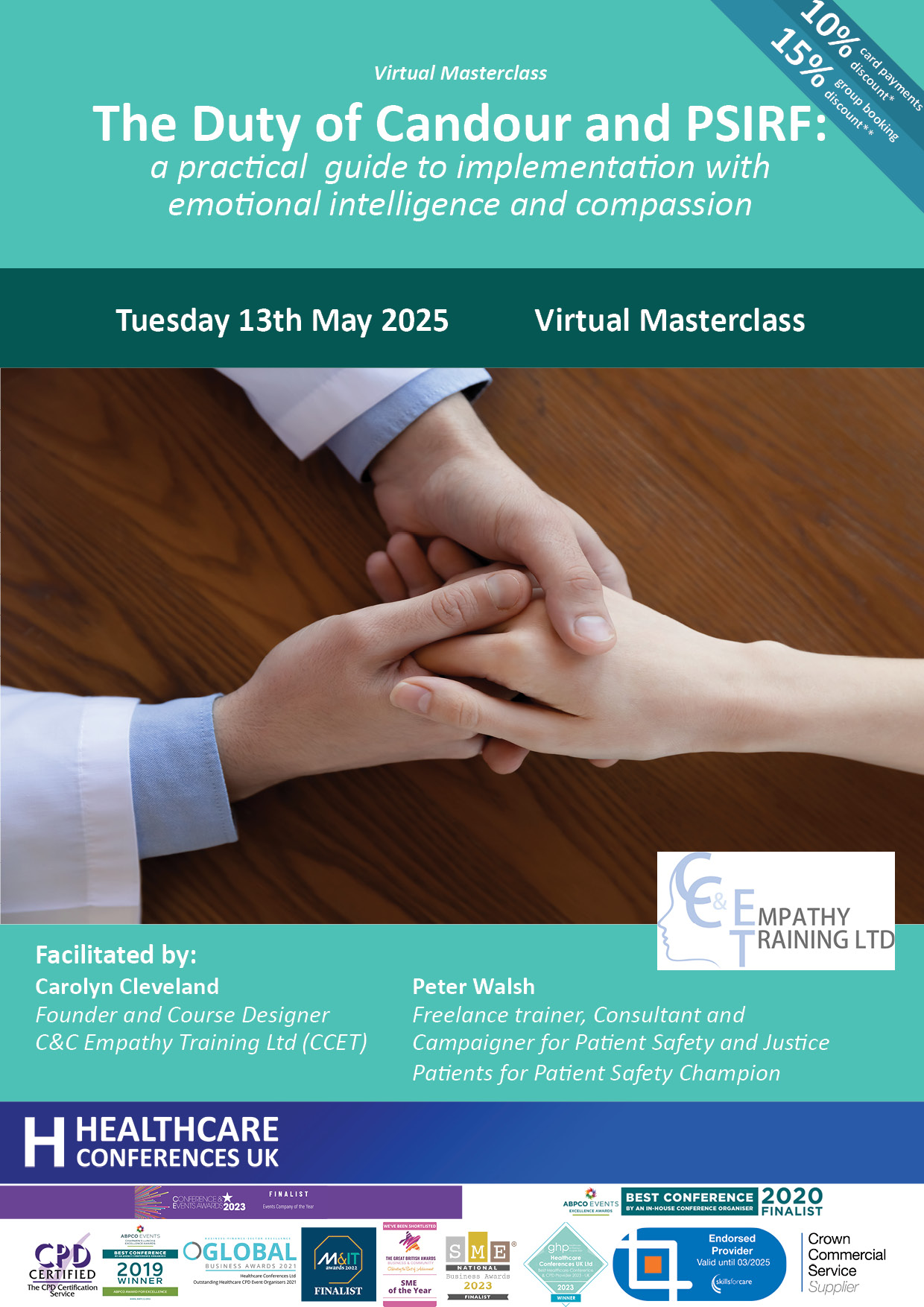Recommendation 6 CQC Learning Candour and Accountability Report: ‘Investigation teams must be comprised of staff who have mental health and learning disability expertise, where relevant, as well as the skills to apply the duty of candour compassionately, and the skills to support individuals at a time of complex bereavement.’
‘Engagement leads must have the competencies to actively listen, show openness, demonstrate empathy and create rapport with those affected.’ Engaging and involving patients, families and staff following a patient safety incident - PSIRF Supporting guidance
Any staff with responsibility for implementing the duty of candour and/or PSIRF and those responsible for quality; safety; clinical governance; safety investigations; complaints; CQC compliance; or patient experience/ involvement would benefit from attending this one-day training.
The course will provide participants with an in-depth knowledge and understanding of how to not only comply with the duty of candour and the Patient Safety Incident Response Framework (PSIRF), but to do so in an emotionally intelligent way, with empathy and compassion for all involved.
Practical guidance on complying with the regulations and guidance
The “grey areas” and what people most often get wrong
Using emotional intelligence to understand the difficult emotions experienced by patients/those closest to them and staff following patient safety incidents
What empathy and compassion mean in practice
Handling difficult and emotive conversations well
Making a meaningful apology
How Duty of Candour and PSIRF work alongside other policies and procedures including complaints; litigation; Martha’s Rule and the soon to be introduced “Hillsborough Law”
How the new “Harmed Patient Pathway” can help you get it right 7
How to ensure communication moves beyond compliance and frameworks but remains emotionally intelligent and personal







